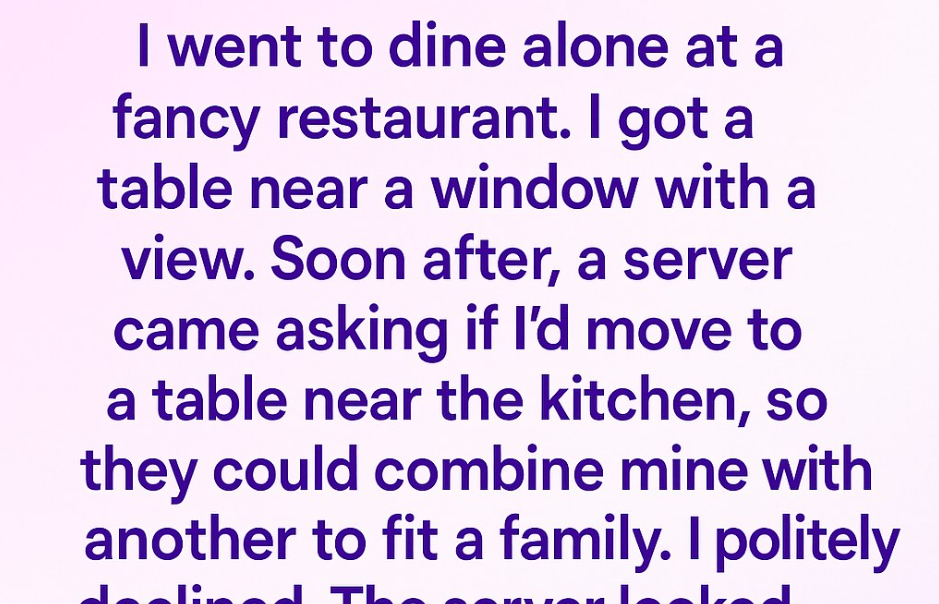I chose to dine solo at an elegant restaurant one evening. I was seated at a table by a large window, offering a stunning view of the city. Not long after settling in, a server approached me, inquiring if I’d be willing to relocate to a table closer to the kitchen to allow my current spot to be combined with another for a larger family. I courteously declined the request. The server’s expression tightened briefly, but they nodded and said, “Alright.” Moments later, I was surprised when a woman approached my table, her face lit with a warm, gentle smile.
She introduced herself as the mother of the family needing the extra space. Rather than pressing me to move, she expressed gratitude for my decision to stay. “I can imagine that might have felt uncomfortable,” she said, her voice kind and steady, “but it’s a reminder that your place here holds just as much value as anyone else’s. People sometimes assume dining alone means you’re less entitled to a great seat, but you are enough.”
Her words struck a chord deep within me. I had entered the restaurant that evening simply intending to enjoy a meal on my own, but her kindness made me feel truly acknowledged. She didn’t stay long—she rejoined her children at their table—but her warmth lingered with me throughout the evening. I savored my meal, free of any unease, fully present in the moment.
As I gazed at the city lights twinkling beyond the window, a quiet realization settled in: being alone doesn’t diminish your worth. Sometimes, standing firm in your space—both physically and emotionally—is a subtle yet profound act of strength. I left the restaurant that night with a heart full of gratitude, understanding that dining alone wasn’t about solitude, but about embracing my own presence.







